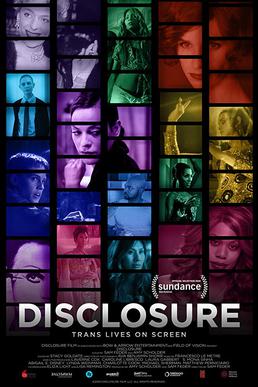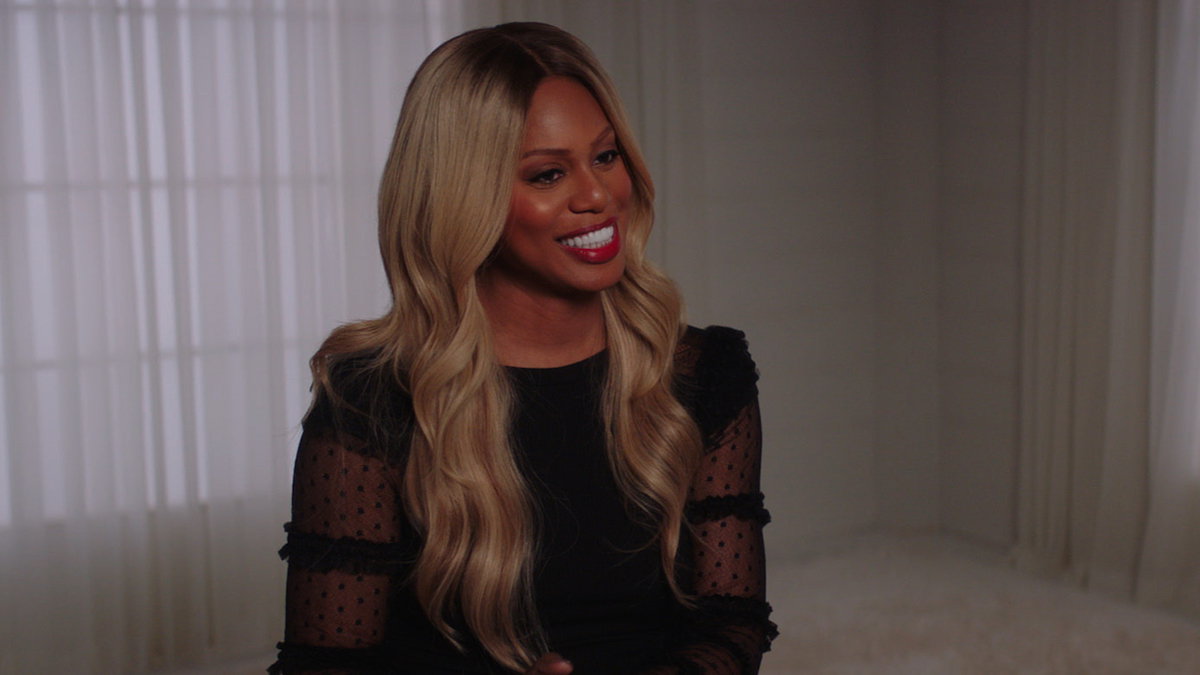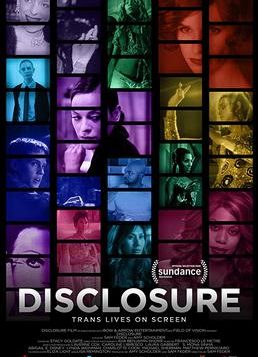 Disclosure
Disclosure
Netflix (2020)
Sam Feder, Director
Disclosure is a original documentary in which notable trans actors, writers, academics, and activists review the history of trans representation within film and television. Throughout his directorial career Feder has maintained a focus on the lives of trans people and their challenges and triumphs. His documentary Boy I Am (2006) looks at the lives of three transitioning transmasculine people in New York City and the stigma they face from parts of the cisgender lesbian community. No More Lies (2010) is an earlier documentary short that similarly reviews trans representation in media. Kate Bornstein Is a Queer & Pleasant Danger (2014) follows the titular trans performance artist and activist on tour as she examines and explores gender through her art.
Disclosure falls neatly into Feder’s wheelhouse as a filmmaker, interviewing prominent and knowledgeable figures across disciplines to investigate how trans people have been portrayed in media and elucidating viewers on the often obscured history of trans people in film and television. Laverne Cox serves as the primary narrator throughout, opening the documentary with the statement: “I never thought I’d live in a world where trans people would be celebrated, on or off the screen. … I never thought the media would stop asking horrible questions, and start treating us with respect. Now look how far we’ve come.” The arc of this sentiment is exactly what this film aims to examine, as well as the risks and rewards of representation for the day-to-day lives of actual trans people.
Author, speaker, and activist Tiq Milan asserts: “The paradox of our representation is, the more we are seen the more we are violated.” While Disclosure interrogates the stereotypical and often fear-based depictions of trans people across film and television over the years, which impacts how trans people are viewed by society at large, Jamie Clayton (known from her role on Netflix’ Sense8) argues that positive representation holds risks as well, putting people in more danger by effectively creating a more visible target for those who would seek to harm trans people. Da’Shaun Harrison, a trans author and managing editor of Wear Your Voice magazine, put it succinctly: “To be visibly queer is to choose your happiness over your safety.”
Positive representation is still relatively recent, however, with examples few and far between. For decades of history on-screen, trans people were portrayed either as the butt of the joke or as targets of disgust. This change affects not only how trans people are viewed by the world but how they view themselves. Jen Richards (an actor in HBO’s Mrs. Fletcher) speaks to the individual history of representation that each trans person has based on what they’ve personally experienced.

Just as important as increasing the number of trans stories in media is the issue of who gets to tell these stories and play these characters. The importance of people with the lived experience of transness having control of the story is demonstrated by Feder’s film. Cisgender people are often appropriating not only control of the stories, but also the roles of trans people, while simultaneously disregarding their input at all stages of production. This leads to trans characters being flattened into far less complex people. In a role with a cis man playing a trans woman, the focus of the performance is on how successfully he pulled off the new gender role.
Disclosure is an insightful look into the way that media shapes people’s views of trans people and how they view themselves. By centering the voices of trans people in how these movies and shows have affected their development and how they’re perceived in the world, Feder provides incisive critique and a wellspring of knowledge that is made much more accessible by the platform on which it is provided. While the journey of trans representation has come a long way, Disclosure makes it clear that representation can only be a small part of the “broader movement for social change” required to change the conditions of daily life for trans people.
The film is executive produced by Laverne Cox (most recognizable from her role in Netflix’ Orange is the New Black), produced by Amy Scholder.
 Craig Hale is one of the hosts of the film podcast “I Want You To Watch This.” They are a media and culture critic with a passion for amplifying the stories of those who typically go unheard. You can find their podcast at iwytwt.com and on Twitter @iwytwt, and more of their written film reviews at letterboxd.com/catharticus.
Craig Hale is one of the hosts of the film podcast “I Want You To Watch This.” They are a media and culture critic with a passion for amplifying the stories of those who typically go unheard. You can find their podcast at iwytwt.com and on Twitter @iwytwt, and more of their written film reviews at letterboxd.com/catharticus.






